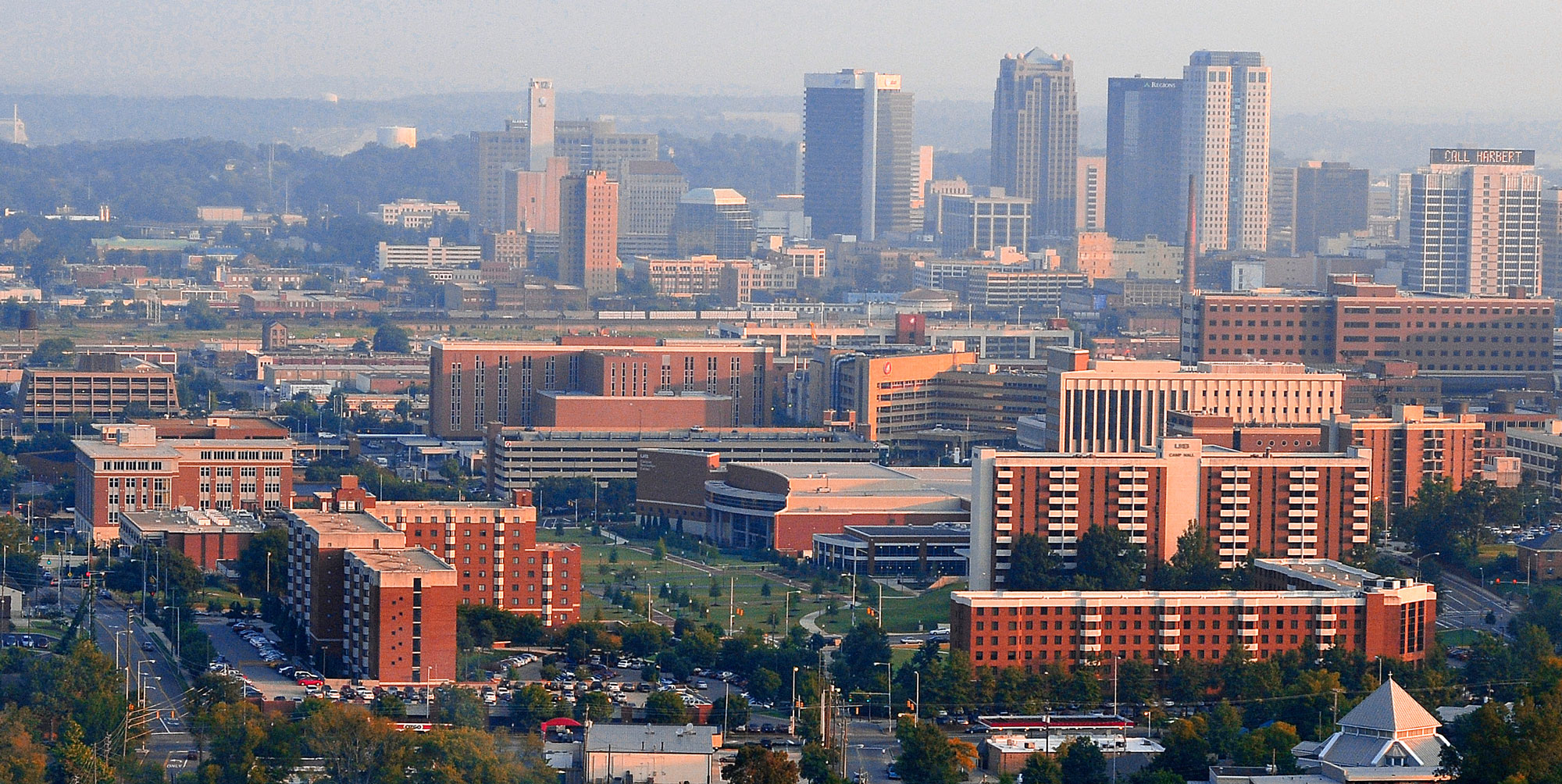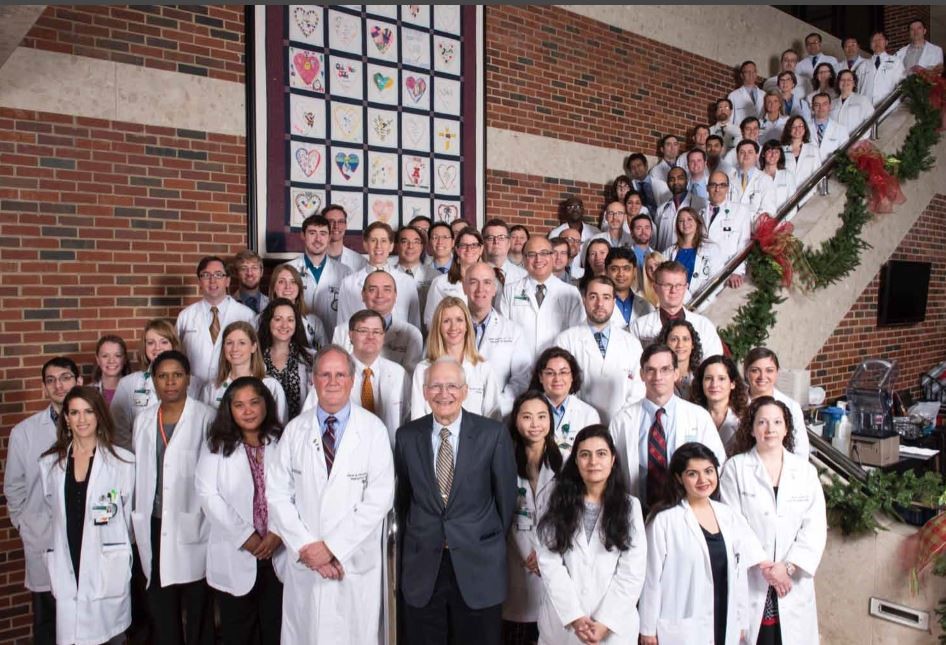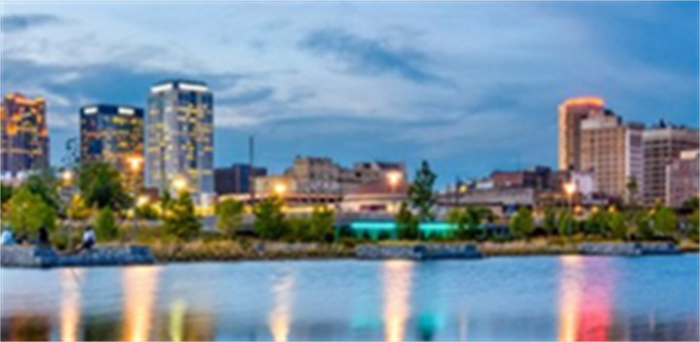Academic Stroke, UAB Department of Neurology – University of Alabama (UAB)
- Position:
- Assistant Professor, Academic Stroke Neurologist, Department of Neurology – University of Alabama (UAB)
- Specialty:
- Neurology – Stroke, Neurology – Vascular
- Location:
- Birmingham, AL

The Department of Neurology at the University of Alabama, Birmingham School of Medicine (UAB) seeks candidates for open rank vascular neurology faculty positions within the UAB Division of Cerebrovascular Disease. The clinically oriented positions focus primarily on inpatient, outpatient and telestroke services. Successful applicants will report to Toby Gropen, MD, Professor of Neurology and Division Director of Cerebrovascular Disease.
Candidate Qualifications
• MD or DO with unrestricted medical license (eligible for licensure in Alabama.
• Board certified in Neurology, including 4 years of residency training and 1 year of stroke fellowship, BC/BE in Vascular Neurology.
Position Specifics
UAB, Division of Cerebrovascular Disease
Our division specializes in the prevention, diagnosis and treatment of stroke and stroke-related disorders through the Comprehensive Stroke Research Center, with a 24-7-365 stroke team and Neuro-Endovascular Interventional Service, pre-hospital notification from Birmingham Regional EMS paramedics (BREMSS), and Level I UAB Emergency Department. UAB has been named a Comprehensive Stroke Center by the Joint Commission and the American Heart Association/American Stroke Association.
UAB met the Joint Commission’s standards for Disease-Specific Care Comprehensive Stroke Center Certification. UAB, which is the first hospital with Comprehensive Stroke Center certification in Alabama, has the most board-certified vascular neurologists in the state, along with 350 nurses specially trained in stroke care. UAB’s Neurosciences Intensive Care Unit is one of the largest in the United States, and UAB Hospital also boasts a dedicated stroke unit. UAB treats over 1,200 strokes a year.
The Comprehensive Stroke Research Center integrates the latest in medical technology with a multi-faceted approach including the:
Vascular and critical care neurology service — An inpatient service dedicated exclusively to stroke victims and critically ill neurologic patients, staffed by a team of neurologists and nurse specialists.
Outpatient services — Risk stratification and follow-up via the Stroke Outpatient Clinic, a division of The Kirklin Clinic.
Diagnostic services — A comprehensive approach to the evaluation of cerebrovascular disorders, including MRI/MRA, CT, SPECT, cerebral catheterization and angiography, and the Neurovascular Ultrasound Laboratory.
Education
Two vascular neurology residency positions are available each year. This two-year fellowship provides extensive training in diagnosis, evaluation, and management of stroke, as well as care of critically ill neurologic patients.
UAB Department of Neurology

Neurology Overview
The nationally-ranked UAB Department of Neurology is home to eight comprehensive divisions and seven centers offering an array of clinical activities. Over 26,000 patients are cared for annually through state-of-the-art subspecialty care and innovative treatments. Our residents have the opportunity to work in various neurology fields with 50 clinical and research faculty members.
The Department of Neurology at UAB offers an array of clinical activities in hospital and ambulatory care of patients. The department is staffed with individuals who have both clinical and research expertise to present a traditional clinical neurology experience to the students while also demonstrating the expanding treatment options created by the major advancements in clinical and basic neuroscience.
In addition to available general clinical care, specialized services are established in stroke, critical care, epilepsy, dementia and behavioral neurology, movement disorders, headache, clinical neurophysiology, neuroimaging, neuroimmunology, neuro-oncology, neuromuscular disorders, muscle and nerve histopathology, and neuropsychology.
Research, both fundamental and clinical, and therapeutic trials enable the staff to offer patients innovative treatments and students and house staff a caring and scholarly educational approach.
Department of Neurology Statistics:
- 24,000 outpatients seen annually at The Kirklin Clinic
- Over 2,000 annual admissions to UAB Hospital
- $8 million in annual research funds
- More than 100 ongoing research projects and clinical trials
- Neurology residents currently in 4-year training program: 24
- Advanced Fellowship Trainees: 8
- UAB Neurosciences were ranked among the top programs in the country in 2011 by U.S. News & World Report
Neurology Residency & Fellowships:
The UAB Department of Neurology adult neurology residency program, led by Dr. Khurram Bashir, MD, MPH, trains six (6) neurology residents each year. Additionally, the department offers nine (9) advanced fellowship training programs.
- Epilepsy – Directed by Dr. Monisha Goyal
- Memory Disorders
- Movement Disorders
- Neuroimmunology/Multiple Sclerosis
- Neuromuscular Medicine
- Neuro-Oncology
- Neurophysiology
- Neuropsychology
- Vascular Neurology
Neurological Research Centers/Programs:
- Alzheimer’s Disease Center: Established by Dr. Lindy Harrell in 1991, the center has developed into an interdisciplinary research and clinical program devoted to learning about Alzheimer’s disease from a basic biology to clinical response to promising pharmaceutical treatments. Under the guidance of Dr. Daniel Marson, the Center is at the forefront of basic and clinical studies into the diagnosis and treatment of Alzheimer’s disease. The Center’s faculty researchers are conducting state-of-the-art basic science, cognitive, brain imaging and clinical studies to identify the causes and search for better treatments of Alzheimer’s disease in collaboration with researchers throughout the world.
- Bachman-Strauss Dystonia and Parkinson’s Disease Program of Excellence: Directed by Dr. David Standaert, the mission of the program is to integrate the elements of research and clinical care for patients with Dystonia and Parkinson disease; included in this is community outreach, coordination of care, and facilitation of access to multidisciplinary treatment including movement disorder specialists, physical, occupational and speech therapy, botulinum toxin treatment, neurosurgical treatment, and genetic counseling. Furthermore, the program enhances the access of patients to clinical trials in dystonia and Parkinson disease. The program also facilitates the interactions between clinicians, basic scientists, and members of the community, and promotes cross-culture efforts to translate new discoveries while training the next generation of dystonia and Parkinson disease clinicians and scientists through support of clinical and basic/translational fellowships. UAB joins Beth Israel Hospital, University of California San Francisco and the University of Florida as one of these named programs.
- UAB Cannabidiol Program: The UAB Epilepsy Center at the University of Alabama at Birmingham will be conducting a study of cannabidiol, or CBD, in children and adults with severe seizure disorders that are not controlled by existing treatments. CBD is a plant-based supplement derived from the cannabis plant. It is a light, oily liquid that will be delivered orally.
From its origins as a fledgling medical complex and modest “extension center” of the University of Alabama in the mid-20th century, UAB has evolved into one of the most dynamic and productive universities of the 21st century. In four short decades since becoming an autonomous campus in 1969, the institution has risen to global renown for its intensely collaborative research and patient care, novel academic programs, and robust culture of innovation.
Central to UAB’s ascent has been the longtime partnership with the community to drive the economic and cultural renaissance of Birmingham, which is now a thriving nexus for research, health care and technology transfer. Once known as the “Magic City” for its booming steel trade, the Birmingham metro area and UAB have now built a boomtown of a different sort, working a different kind of magic, and successfully mining a resource much more precious in the 21st century: The intellectual capital to keep Alabama and the U.S. competitive in today’s global, knowledge economy.
In an effort to make even greater advances in the five pillars of our mission–Education, Research, Patient Care, Service and Economic Development–UAB is currently engaged in the most comprehensive strategic planning process in its history. The Plan establishes top strategic priorities and builds around areas of excellence so that its greatest strengths will be effectively harnessed for the greater good, at home and around the globe.
UAB School of Medicine
The School of Medicine has approximately 750 students, 900 residents and 1,300 full-time faculty in 25 academic departments. It is the home of The Kirklin Clinic, a multi-disciplinary medical home and the University Hospital, which is one of the largest academic hospitals in the country. The SOM faculty also serve at the new Children’s of Alabama hospital. The School of Medicine is centralized in a large university complex that spans more than 80 city blocks, with much of that space dedicated to clinical facilities, research laboratories, classrooms, and surgical suites. The program also extends to regional campuses in Huntsville, Montgomery and Tuscaloosa to expand its academic reach and responsibilities, helping educate physicians in rural and underserved areas of the state.

The school was established as the Medical College of Alabama in 1945 and renamed as the University Of Alabama School Of Medicine in 1969. The regional campuses at Tuscaloosa and Huntsville were established in 1972, and the Huntsville campus joined UAB in 1995. The Montgomery regional campus was established in 2012 with classes beginning in 2014, and the Montgomery Internal Medicine Residency program has been affiliated with the school since 1978. The Selma Family Medicine Residency program was established in 1977. In total, the various UAB campuses have trained 2,126 physicians in the last 10 years.
Accolades:
- Ranked 17th in the nation for Primary Care by U.S. News & World Report
- Ranked 37th in the nation for Research by U.S. News & World Report
- Ranked as the Top Hospital in Alabama by U.S. New & World Report
- “America’s Best Hospitals” – Nine UAB Hospital medical specialties are among the nation’s top 50 in the 16 categories evaluated at U.S. hospitals by U.S. News & World Report.
- “Best Doctors in America” – The 2013 list recognizes 323 UAB physicians in 65 specialties who are among the top 5 percent of clinicians in the United States, as voted by their peers.
- “Best Graduate Schools” – U.S. News & World Report ranked 11 programs in the top 25, five in the top 10 in 2013.
- “Best Places to Work as a Postdoc” – The Scientist ranked UAB No. 1 among all public universities and No. 8 among all institutions in 2013.
- Research Funding – Ranked No. 21 nationally in funding from the National Institutes of Health and No. 31 in total federal research funding with expenditures of $454 million for FY 2012.
Research
UAB study identifies pathway that may cause seizures and shorten survival for patients with severe brain tumors:
Researchers at UAB have identified a chemical pathway that may be associated with seizures and shorter patient survival in some patients with malignant glioma, the most common and deadly form of brain tumor. In findings published May 27 in Science Translational Medicine, the researchers suggest that a transporter known as SXC is responsible for boosting levels of glutamate in the brains of some glioma patients.
UAB Center for AIDS Research: Ranked 10th Nationally for AIDS Research by U.S. News & World Report
UAB is one of the seven inaugural NIH-designated Centers for AIDS Research established in 1988 and a world leader in HIV/AIDS research and patient care. UAB has been among the first to make the newest, most effective treatments available to patients, including the three-drug combination that today is the standard of care. From the field, a UAB-led team discovered the simian virus linked to all major HIV-1 variants and traced the exact route of HIV’s spread to humans. U.S. News & World Report ranks the AIDS program No. 8 among “America’s Best Graduate Schools,” and the journal Science recently highlighted Birmingham and UAB’s 1917 Clinic among 10 cities nationally excelling in efforts to combat the disease.
Birmingham, Alabama

The astonishing pace of Birmingham’s growth during the period from 1881 through 1920, earned the city its nicknames “The Magic City” and “The Pittsburgh of the South.” Today, Birmingham ranks as one of the most important business and banking centers in the Southeastern U.S. Birmingham is the cultural and entertainment capital of Alabama with its numerous art galleries in the area. Birmingham is also home to the state’s Alabama Ballet, Alabama Symphony Orchestra, Birmingham Ballet, Birmingham Concert Chorale, and Opera Birmingham. Birmingham hosts numerous cultural festivals showcasing music, films, and regional heritage such as the Sidewalk Moving Picture Festival which brings filmmakers from all over the world to Birmingham to have their films viewed and judged.
Culinary Culture
Birmingham chefs Frank Stitt, Chris Hastings and Chris Dupont have helped put Birmingham on the culinary map. From fine dining to local dives, Birmingham has a plethora of restaurants to choose from. Frank Stitt III is the owner and executive chef of Highlands Bar and Grill, Bottega Restaurant, and Chez Fon Fon in Birmingham, Alabama. He was inducted into the James Beard Foundation’s “Who’s Who of Food and Beverage” in 2011. He was also named the “Best Chef in the Southeast” in 2001, and was a 2008 finalist for the national “Outstanding Chef” award. He has also been recognized with a Lifetime Achievement Award from the Southern Foodways Alliance for his elevation of Southern cuisine and his early advocacy of locally-grown food.
Living in Birmingham
With a cost of living below the national average, Forbes has ranked the Birmingham metro as “America’s Most Affordable City” for 2015. Birmingham is primarily recognized for its affordable housing. During the fourth quarter of 2014, the median sales price for a home was $130,000. Also highlighted in by Forbes is the city’s quality of life, its medical research industry and the number of large companies setting up plants nearby – some 70 foreign countries, including Mercedes Benz and Honda, have facilities in and around Birmingham.

Birmingham’s Industry & Economy
As the largest city in Alabama, more than 3,000 new jobs and $370 million in capital investment announced in 2014, the Birmingham region is realizing its potential as a powerhouse in Alabama and the Southeast. In fact, Birmingham’s 3.8% GDP growth from 2011 to 2012 outpaced not only Alabama’s other metros, but also the nation, which averaged growth of 2.5%. Boasting an excellent transportation infrastructure; low cost of living and doing business; unprecedented collaboration and support among local business leaders; a world-class research institution at the University of Alabama at Birmingham; a thriving technology and innovation ecosystem; and a 21st century workforce, the economic development climate in Birmingham has been the recent focus of media across the country. Forbes Magazine recently ranked the Birmingham metro area 6th among large cities experiencing a manufacturing boom, resulting in a growth in employment over recent years. Other recent Birmingham accolades include:
- “Silicon Valley of the Southeast” by Network World
- “1 of 15 Up and Coming Downtowns” by Forbes
- “Hotspot for Digital Crime Fighting” by TechRepublic
- “Top 30 Best Cities for Young Entrepreneurs” by Under30CEO
With a 2014 Annual Average Employment of 42,300 in the Financial Activities sector, metropolitan Birmingham is a major exporter of banking and insurance processing services. According to Bankography, Birmingham ranks 9th in the nation for bank assets with nearly $200 billion assets. In addition to being the corporate headquarters for Regions Financial Corporation and BBVA Compass, the metropolitan area serves as the regional operations for Fortune 500 financial services companies, including State Farm and Allstate. Birmingham also serves as one of four regional processing centers for the U.S. Social Security Administration and the headquarters for Blue Cross and Blue Shield of Alabama.
Birmingham serves as the location of:
- 35 major business processing centers, with more than half specializing in finance and insurance processing
- The corporate headquarters for Regions Financial Corporation, BBVA Compass, Infinity Property & Casualty Corporation, Pro Assurance Corporation, Protective Life Corporation and Blue Cross and Blue Shield of Alabama
- A top-10 U.S. banking center with nearly $200 billion in assets
- More than $530 million in data center development over the past five years, creating more than 200 jobs
- More than a dozen new or expanding back-office operations since 2011, creating more than 2,300 jobs with $40 million in capital investment

Ease of Travel
Birmingham-Shuttlesworth International Airport (BHM) is Alabama’s largest airport serving the Greater Birmingham area and surrounding Southeastern cities. Offering more than 100 daily flights to over 25 cities throughout the United States. Top destination include Orlando, Las Vegas, Baltimore, New York, and Tampa.
Birmingham’s Recreational Opportunities:
- Beach/Ocean: Birmingham is within a half days drive of the beaches of Gulf Shores.
- Biking: Oak Mountain State Park’s red trail, a 17-mile loop, attracts mountain bikers not only from the Birmingham area but from as far away as Florida and Louisiana. Designed and built by the Birmingham Urban Mountain Pedalers (BUMP), the trail opened in 1993 and is a combination of single track and an old two-lane fire road. The loop has several access points to park and start the bike trail.
- Fishing: Sitting smack dab in the middle of the best fishing the South has to offer is Birmingham, the hottest fishing destination in the South. Whether your love is hard-fighting largemouth and spotted bass, monstrous gear-destroying striped bass or just the solitude of fly-fishing for rainbow trout in gently tumbling waters, it can all be found in the Birmingham area. The area boasts several lakes and reservoirs of which to choose from.
- Golf: Birmingham’s weather is generously comfortable, which is one smart reason golfers come here from around the world. The other reason is the lure of handsome and challenging public golf courses. With the development of the state’s Robert Trent Jones Golf Trail, Alabama became the Godfather of Great Golf. Birmingham has two of the eleven courses along the trail, one of which is the third longest course in the world.
- Nature: With thousands of acres of national park and forest, Birmingham is within close proximity to five (5) national parks/wilderness areas. This offers ample opportunity for hiking, biking, camping, fishing, and horseback riding.
- Sports: In professional sports, the Class AA Birmingham Barons have one of the proudest traditions in baseball. The team plays at Regions Field, one of the premier stadiums in minor league baseball. College football dominates sports in Birmingham. UAB (The University of Alabama at Birmingham), which fields a major college basketball and baseball team, also has a Division IA football program. The team plays at Legion Field. College athletics also play an important role on the campuses of Birmingham-Southern College, Samford University, and Miles College. Birmingham also hosts a number of sports museums including the Alabama Sports Hall of Fame, the Barber Vintage Motorsports Museum, and the International Motorsports Hall of Fame.




